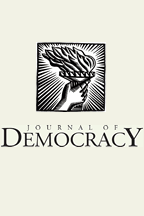
In the article, I lay out several reasons why these fears did not come to pass in 2020, and why Taiwan's democracy has repeatedly proven resilient to PRC pressure campaigns.
- The CCP is still pretty bad at influencing public opinion: Beijing's covert influence operations have been surprisingly clumsy, badly disguised, and at odds with the long-term goals of Taiwan policy under Xi Jinping.
- Partisanship can be a good thing: The high salience of the China factor and Taiwan's partisan divides make it hard to execute the kind of United Front-led, covert and coercive activities that the CCP favors for most of its influence operations elsewhere in the world.
- State capacity lives: The Taiwanese state is still quite capable of responding effectively to the threat of foreign interference in elections when it takes them seriously, and the 2018 elections provided a belated wake-up call to this danger.
- A free society helps: Taiwanese civil society, including parts of the media and NGOs, as well as private social media companies, managed to mitigate the impact of disinformation. Facebook, for instance, took down over a hundred Han Kuo-yu fan pages the month before the election for "inauthentic activity."
- Low-tech elections are an important backstop for democracy: Taiwan's election management system is very low-tech, but it is also transparent, accurate, efficient, fast, and fair. (For more details, see here.) Nobody disputed the election results, shocking as they were to some of Han Kuo-yu's core supporters who had believed the polls were fake and that Tsai would lose. The high trust in the voting and counting process had a lot to do with that.
 RSS Feed
RSS Feed
